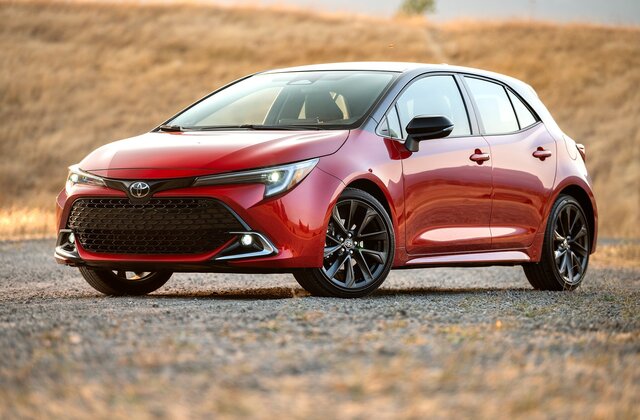Making modifications or improvements to a vehicle in order to improve its performance, appearance, or functionality is referred to as car upgrading. A car can be upgraded in a variety of ways, and the specific upgrades chosen will depend on the individual’s preferences and the intended use of the vehicle.
Some examples of common car upgrades are:
-Performance upgrades: These upgrades are intended to increase the vehicle’s power and speed. Installing a new exhaust system, upgrading the suspension, or adding a turbocharger or supercharger are examples of modifications.
-Appearance upgrades: These are intended to improve the appearance of the vehicle and can include installing new wheels, adding a body kit, or repainting the car.
-Functionality upgrades: These are intended to improve the vehicle’s functionality and can include adding a new stereo system, installing a navigation system, or installing a rear-view camera.
-Tuning/Chip tuning: The process of modifying the engine control unit (ECU) that controls how the engine operates. It enables the optimization of engine parameters such as fuel injection, timing, and boost.
Before you upgrade your vehicle, there are several factors to consider. Here is a list of ten things to consider:
The following are the reasons for upgrading:
- The first thing to think about is why you want to upgrade your vehicle. Do you want more horsepower or torque? Do you want a more opulent ride? Do you require additional cargo space? Understanding why you want to upgrade will help you decide which changes will be most beneficial.
- Budget: Because upgrading a car can be costly, it’s critical to set a budget before beginning any work. Make a list of the changes you want to make and get cost estimates for each one. This will help you prioritize the upgrades and avoid overspending.
- If your vehicle is still under warranty, you should check with the manufacturer to see if any modifications will void the warranty. Certain modifications may be permitted in some cases, but you must obtain approval from the manufacturer before making any changes.
- Compatibility: Make sure that any upgrades you make are compatible with your vehicle. For example, if you want to install a new exhaust system, you must ensure that it fits properly and does not interfere with other parts of your vehicle.
- Professional installation: While some upgrades can be performed by the average car enthusiast, it is generally recommended that any major modifications be installed by a professional. This ensures that the work is done correctly and gives you peace of mind that the upgrade was completed safely.
- Consider whether the upgrades you are making will increase the value of your vehicle. If you intend to sell the car in the future, certain upgrades may make it more appealing to prospective buyers.
- Fuel efficiency: If you want to save money on gas, there are several upgrades that can help improve the fuel efficiency of your car. These could include a more efficient engine, tires with low rolling resistance, and aerodynamic changes.
- Performance: There are several upgrades you can make to improve the performance of your car. A new exhaust system, cold air intake, or performance chip are examples of such upgrades.
- Upgrading your vehicle’s safety features is always a good idea. This could include replacing brakes, upgrading to better tires, or adding more airbags.
- Insurance: Before making any major modifications to your vehicle, check with your insurance company. Certain modifications may have an impact on your insurance rates in some cases.
To summarize, upgrading your car can be a fun and rewarding experience, but it’s critical to do your research and plan ahead of time. You can get the most out of your car by taking into account your budget, compatibility, and the value of the upgrades.
Advantages of Car Upgrading.
Depending on the specific modifications and improvements made, upgrading a car can provide a wide range of benefits. In this article, we will look at some of the most common reasons why people choose to upgrade their vehicles, as well as the benefits they can expect as a result.
- Increased performance: Improving performance is one of the most common reasons people choose to upgrade their cars. This can include things like upgrading the engine, installing a turbocharger or supercharger, or installing a new exhaust system. These modifications can increase the car’s power and speed, making it more enjoyable to drive and capable of competing in races or other high-performance driving events.
- Improved fuel efficiency: Improving fuel efficiency is another reason people choose to upgrade their vehicles. This can be accomplished by altering the aerodynamics of the vehicle, such as installing a spoiler or air dam, or by upgrading the transmission or fuel injection system. These modifications can help the car become more efficient, using less fuel and costing the owner less to operate.
- Increased safety is another advantage of upgrading a vehicle. This can be accomplished by installing safety features like airbags, seat belts, or electronic stability control. Upgrading the car’s brakes, suspension, and tires can also improve handling and stability, lowering the risk of a road accident.
- Increased comfort: Improving a car’s comfort can make it a more pleasant place to spend time while traveling. Installing a new stereo system or speakers, adding a rear-seat entertainment system, or upgrading the car’s climate control system can all improve ride comfort.
- Aesthetic appeal: Some people choose to upgrade their cars in order to improve their aesthetic appeal. Upgrades such as a new paint job, body kits, or custom rims are popular ways to make the car look more modern and stylish.
- Increased car value: Another significant advantage of upgrading a vehicle is that it can increase the vehicle’s value. This is especially true if the upgrades are done with the goal of keeping the car in good shape and increasing its value over time. Regular maintenance and the addition of new features that buyers want can increase the value of the vehicle.
- While upgrading a car can provide numerous advantages, it’s important to remember that not all upgrades are created equal. Some upgrades may offer minor advantages, while others may significantly improve a vehicle’s performance, fuel efficiency, safety, comfort, aesthetic appeal, or value. It is always advisable to conduct research, consult with professionals and experts, and plan the upgrade accordingly.
To summarize, upgrading a vehicle can be an excellent way to improve its performance, fuel efficiency, safety, comfort, aesthetic appeal, and value. You can make an informed decision about which upgrades are right for you and your car if you understand the various types of upgrades available and the benefits they can provide.
It is important to note that upgrading a car can be a significant investment, so do your homework on the various options and potential costs before making any decisions. Furthermore, depending on where you live, certain upgrades may be illegal, so check the local laws and regulations before beginning any upgrades.














+ There are no comments
Add yours